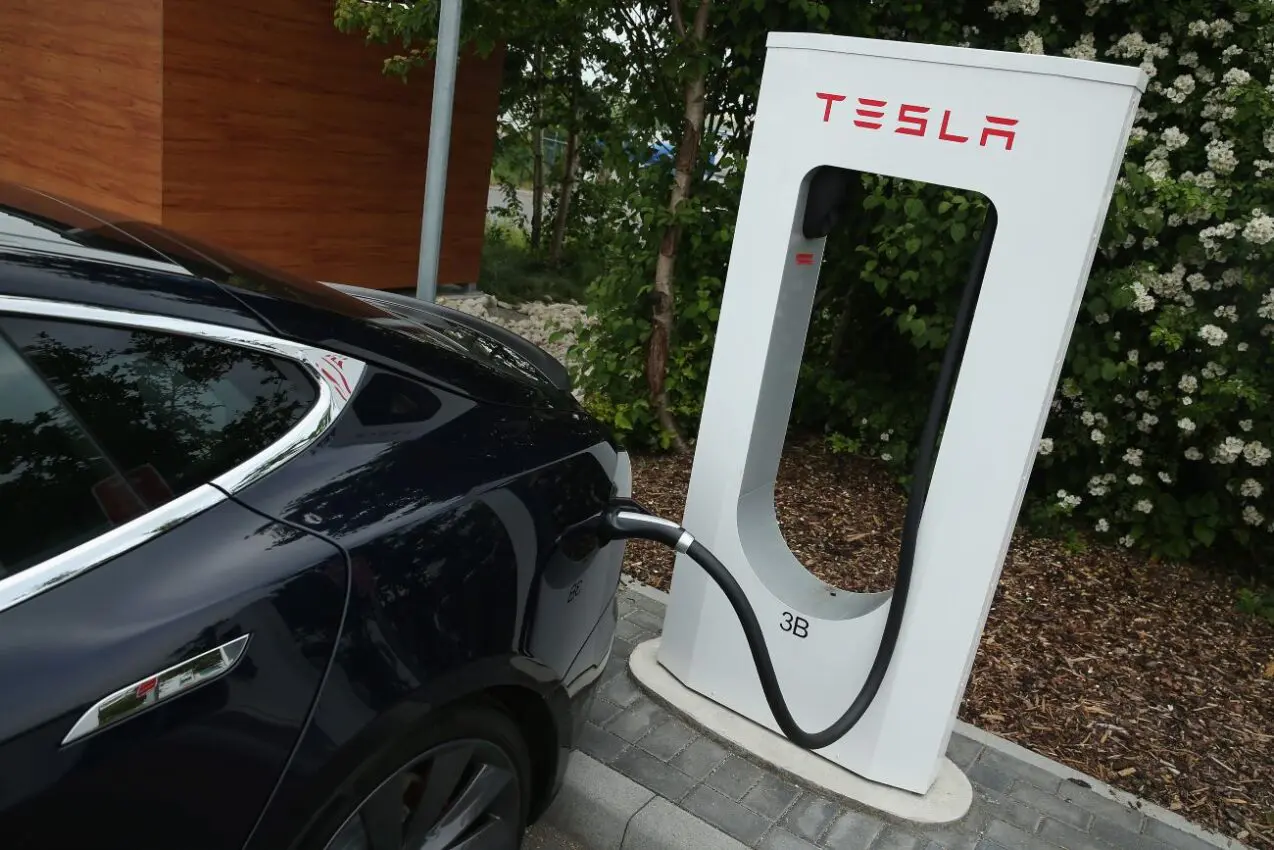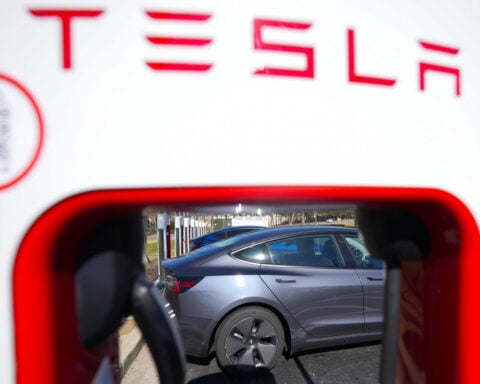In a groundbreaking revelation, a Tesla owner has gone viral online by revealing their shockingly low yearly electric cost of just $2.37 to charge their vehicle. This tiny figure has reignited debates about the real costs of running an electric car compared to gas-powered vehicles.
The Tesla driver, known only as @Tesla_GTownTX, shared a screengrab of their utility statement showing the $2.37 balance owed after 12 months of charging their Tesla. As the story spread getting thousands of responses, many were surprised at how little electricity was required, thinking it would negate any fuel savings.
However, the likely reason for the ultra-low charging costs was the owner's setup using a Tesla Powerwall battery paired with rooftop solar panels. The Powerwall can store excess solar energy produced during the day, then use that stored power to charge the car's battery for free at night instead of drawing electricity from the utility grid.
While Powerwalls cost $11,500-$15,000 upfront per Forbes, the long-term savings on electricity and fuel can make them worthwhile for those planning to keep their electric vehicle long-term. This highlights how proper energy management and integrating renewable sources like solar can minimize or virtually eliminate charging expenses for electric cars.
Critics have often cited potentially higher household electricity bills as a roadblock to EV adoption. But examples like this $2.37 yearly bill challenge that notion, proving with the right setup and practices, charging costs can become negligible. As the transition to electric mobility grows driven by climate change concerns, understanding the real-world operating costs and potential savings of EVs becomes crucial for consumers.
Not everyone may have the means for a Powerwall and solar installation. But this viral story underscores the possibilities for slashing charging expenses through renewable energy integration and strategic energy management practices.
The Tesla driver's minuscule electricity bill serves as a compelling example of the potential cost savings achievable when combining an electric vehicle with solar power and energy storage. As these technologies evolve and become more accessible, such real-world successes could help ease affordability concerns around EVs and accelerate adoption among cost-conscious buyers.
Online commenters joked about the driver's sarcastic lament over the low $2.37 "burden", with one quipping "Maybe start a crowdfunding campaign" to pay it off. While not the average experience, it illustrates achievable savings through renewable energy sources and energy efficiency. As the world seeks sustainable transportation solutions, these success stories could prove pivotal in driving wider EV adoption towards an environmentally-conscious future.

 Inflation in Japan's capital accelerates, keeps rate hike prospects intact
Inflation in Japan's capital accelerates, keeps rate hike prospects intact
 Brazilian authorities: workers at BYD construction site victims of international human trafficking
Brazilian authorities: workers at BYD construction site victims of international human trafficking
 Nidec announces $1.6 billion unsolicited bid for Makino Milling
Nidec announces $1.6 billion unsolicited bid for Makino Milling
 Cole Hutson has 5 assists, defending champion US routs Germany 10-4 in world junior hockey opener
Cole Hutson has 5 assists, defending champion US routs Germany 10-4 in world junior hockey opener
 BOJ debated rate-hike timing, some called for near-term move, Dec summary shows
BOJ debated rate-hike timing, some called for near-term move, Dec summary shows
 Christmas Eve stowaway caught on Delta airplane at Seattle airport
Christmas Eve stowaway caught on Delta airplane at Seattle airport
 Netflix touts biggest-ever NFL streaming ratings, peaking with Beyoncé’s halftime show
Netflix touts biggest-ever NFL streaming ratings, peaking with Beyoncé’s halftime show
 Tesla owner's shocking annual charging
Tesla owner's shocking annual charging 






